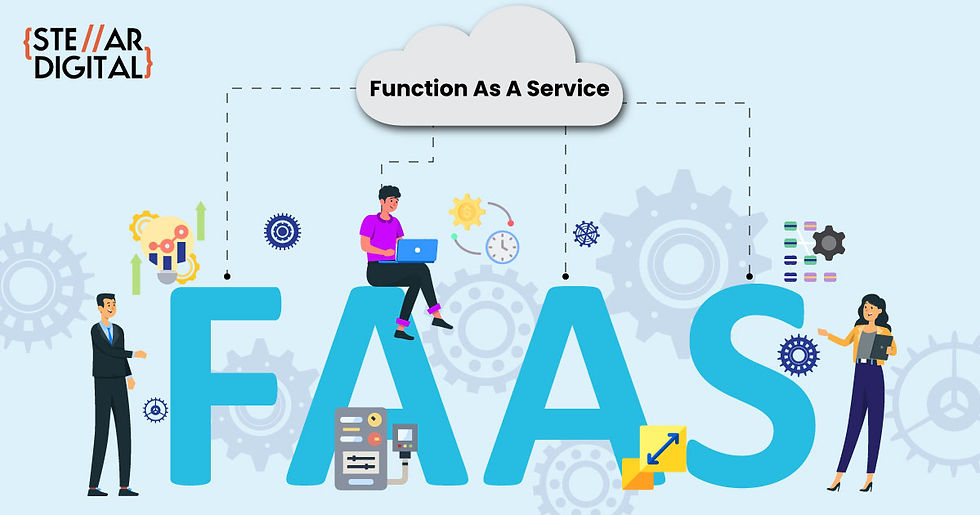What does FaaS stand for? Function as a service explained?
- contactstellardigi
- Jul 29, 2022
- 2 min read

Function as a Service, or FaaS, is a popular topic in the sphere of architecture. The FaaS market is anticipated to grow to $31.53 billion by 2026. One of the fastest-growing cloud delivery methods, FaaS, has garnered the attention of the developer community. It already has an impact on how technology is provided and utilised as well as how consumers choose to purchase it.
As a result, in this article, we will look at it briefly. What is FaaS? How does it function? What impact does it have on day-to-day life?
What is FaaS?
It is a type of cloud computing service that permits the execution of code in response to events without the complicated infrastructure often connected with creating and launching microservices applications.
The deployment and maintenance of a virtual or physical server, as well as the management of an operating system and web server hosting operations, are often required when hosting software applications online. Using FaaS, your cloud service provider automatically controls the web server software, virtual operating system, and physical hardware. It lets you completely focus on a few key functions in your application code.
How FaaS works?
Early applications frequently used monolithic architecture. This suggests that the application was created for a single, simultaneous operation. Developers are becoming more and more accustomed to using microservices. Microservices are a group of components that can be separately deployed. Because they may be worked on independently, they are simpler to test and manage.
Simply said, a function is a tiny service that can only take one action in response to one event. With FaaS, a server will be launched by the provider when a function is engaged. Prior to shutting down the server, the function will be executed. Because serverless services are only active when the function is being used, the same computer resources can be allocated elsewhere when the server is shut down.
When using FaaS, developers can access a platform that enables them to write the code for their applications. FaaS is renowned for its ease of use. Developers must make sure that each function only executes one action in order to get the most out of FaaS.
The function's scope needs to be efficient and limited. The programme will slow down and cost more if you use too many libraries or ask one function to call another.
Conclusion:
If you're not sure whether or not using FaaS will benefit my daily development workflow. Then, You should seek the help of a competent software development company or agency in this situation. when it comes to professionalsoftware development agency, look no further than Stellar Digital. We have a team of highly competent developers who will deliver the most effective solutions to your problems. Simply go to stellardigital.in and send us an email at contact@stellardigital.in.



Comments